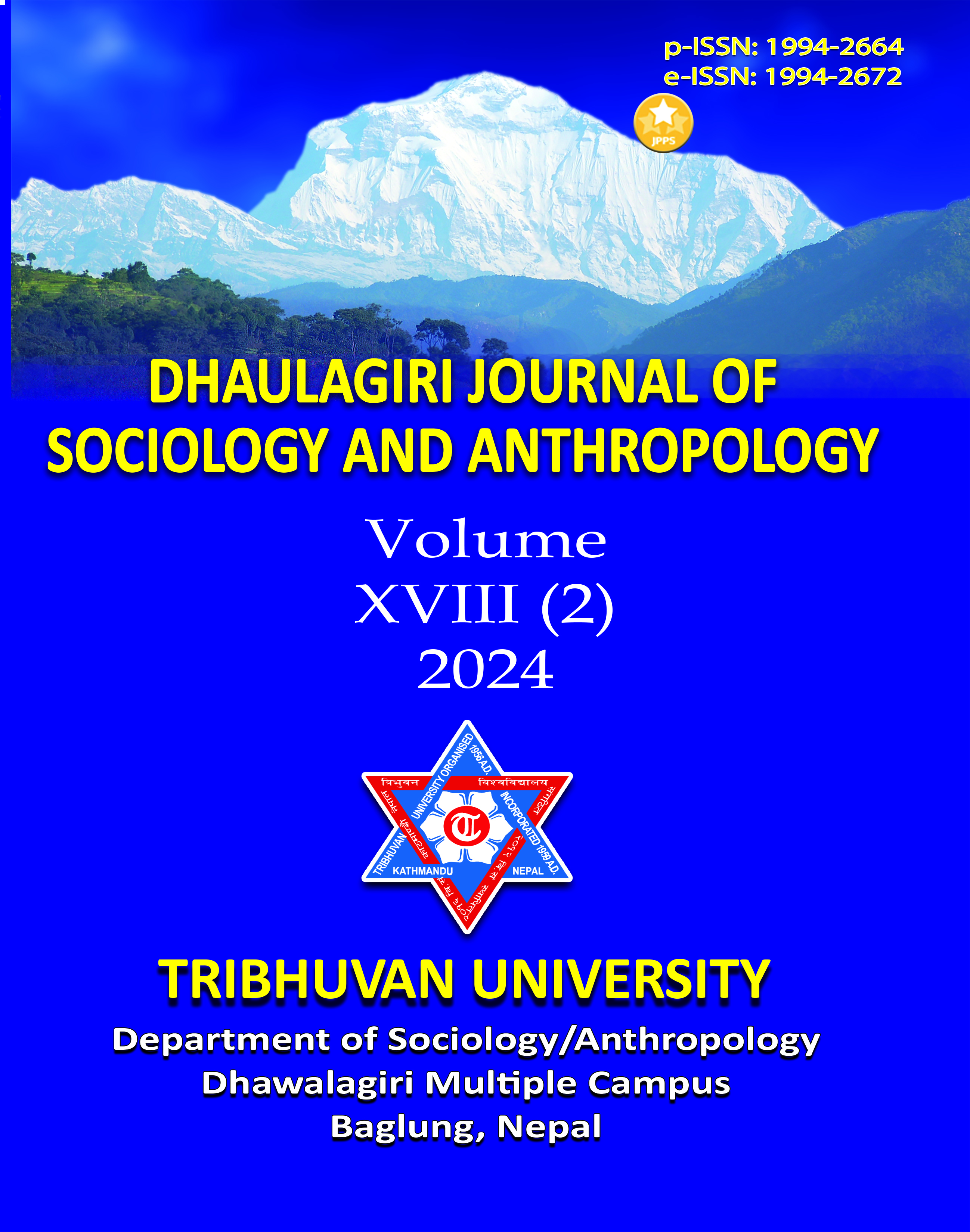Exploring Gender Construction within Families: A Study of the Socialization of Muslim Girls in Kalaiya, Bara, Nepal
DOI:
https://doi.org/10.3126/dsaj.v18i2.73312Keywords:
gender, intersectionality, socialization, Tarai Muslims of NepalAbstract
This paper explores gender socialization using the social construction of gender theory and integrates it with intersectionality theory, focusing on the existing positioning of Tarai Muslim girls. The study internalizes the existing heterogeneity among Muslims of Nepal and focuses on the Tarai Muslims with its research site in Kalaiya, Bara. The qualitative study employs in-depth interviews, key-informant interviews (KIIs), and focus-group discussions (FGDs). By using purposive sampling, participants were selected, and an in-depth interview of 20 parents (10 males and 10 females) was carried out, which was followed by two FGDs: five male parents in the first round of FGD and five female parents in the second round of FGD. This also involved conducting KII with five participants from each group of religious scholars and Muslim girls enrolled in government schools. The research findings suggest that gender socialization results from social factors prevailing within the family, influenced by religious, local, and national contexts. The social norms contributing to gender socialization involve widely held beliefs within the family that perceive the daughter as ijjat of the family and consider them as ‘other house property.’ Similarly, existing practices where females are nurtured to be inherently reliant on males and the beliefs of allocating binary roles to males and females contribute to gender socialization. Moreover, the contradiction of the religious values of Muslims with the local context influenced by the Nepali state is another factor supporting the gender socialization of Muslim girls.
Downloads
Downloads
Published
How to Cite
Issue
Section
License
Copyright (c) 2024 The Author(s)

This work is licensed under a Creative Commons Attribution-NonCommercial-ShareAlike 4.0 International License.




